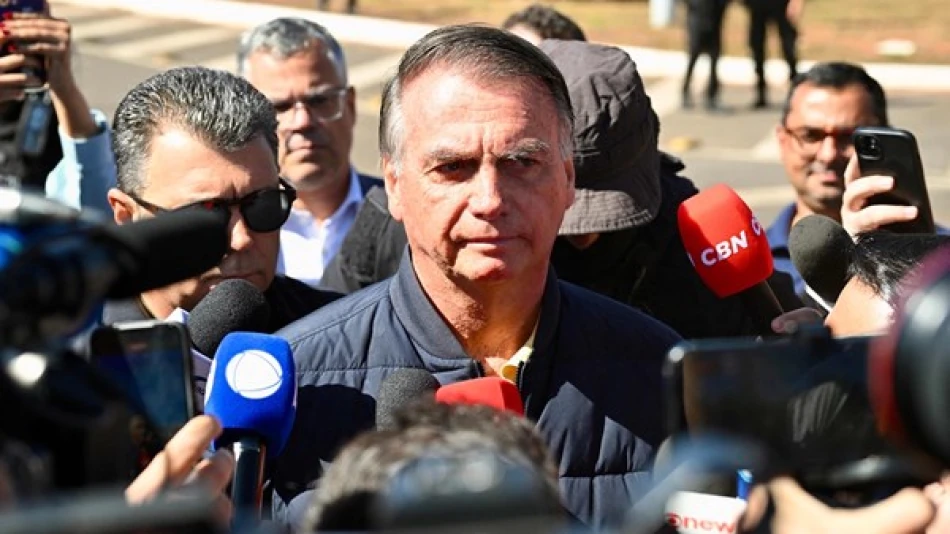
Former Brazilian President Ordered to Wear Monitoring Bracelet in Landmark Court Ruling
Brazil's Bolsonaro Fitted with Electronic Ankle Monitor as Coup Investigation Intensifies
Brazil's Supreme Court has ordered former President Jair Bolsonaro to wear an electronic ankle monitor while banning him from social media, marking a dramatic escalation in the investigation into his alleged coup attempt following his 2022 election defeat. The restrictions, coupled with federal police raids on his residence and party headquarters, signal that Brazil's judicial system is tightening its grip on the far-right leader who has refused to accept his electoral loss.
Unprecedented Restrictions on a Former President
The Supreme Court's decision to place Bolsonaro under electronic monitoring represents an extraordinary step in Brazilian politics. Beyond the ankle bracelet, the court has imposed a comprehensive social media ban and prohibited him from communicating with other individuals under federal investigation, including his own son Eduardo Bolsonaro, a sitting congressman.
Federal police executed search and seizure warrants at Bolsonaro's Brasília residence and his Liberal Party headquarters on Friday, with aerial footage showing multiple police vehicles surrounding the properties. The operations were described by authorities as "precautionary measures" that stopped short of arrest, suggesting investigators are building their case methodically.
The Coup Investigation Reaches Critical Mass
These developments stem from Bolsonaro's alleged attempt to overturn the results of Brazil's 2022 presidential election, which he lost to leftist candidate Luiz Inácio Lula da Silva. The investigation has been building momentum since supporters of Bolsonaro stormed government buildings in Brasília in January 2023, echoing the January 6, 2021 Capitol attack in the United States.
Parallels to Global Democratic Challenges
Brazil's handling of Bolsonaro's case offers a stark contrast to similar situations worldwide. While former U.S. President Donald Trump faced multiple indictments but remained free to campaign and communicate publicly, Brazilian authorities have moved more aggressively to restrict Bolsonaro's activities. This approach reflects Brazil's recent experience with democratic fragility and the Supreme Court's determination to prevent further institutional damage.
Political and Legal Implications
The electronic monitoring order effectively sidelines Bolsonaro from active political participation, potentially reshaping Brazil's conservative movement. His inability to use social media platforms—previously his primary tool for mobilizing supporters—could fragment his political base and create opportunities for other right-wing leaders to emerge.
The restrictions also raise questions about the balance between judicial authority and political rights in Brazil's democracy. While supporters argue the measures are necessary to protect democratic institutions, critics may view them as politically motivated persecution of the opposition.
What This Means for Brazil's Future
The Supreme Court's aggressive stance suggests Brazil's judicial system is prioritizing institutional stability over political accommodation. This approach could set important precedents for how democracies handle leaders who refuse to accept electoral defeats and allegedly conspire against constitutional order.
For President Lula's administration, the investigation's progress provides political cover while potentially eliminating a major rival. However, it also risks martyring Bolsonaro among his supporters and deepening Brazil's political polarization.
The outcome of this case will likely influence how other Latin American democracies handle similar challenges, as the region grapples with rising authoritarianism and electoral manipulation attempts. Brazil's response could either strengthen democratic norms across the hemisphere or demonstrate the limits of judicial intervention in political conflicts.
Most Viewed News

 Layla Al Mansoori
Layla Al Mansoori






